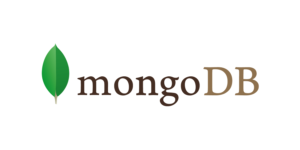
MongoDB Launches Pay-As-You-Go Option on GCP
(Iconic Bestiary/Shutterstock)
Companies that are hesitant to enter into long-term relationships with their database vendor may be interested in the new pay-as-you-go option MongoDB announced today on the Google Cloud Platform.
The new MongoDB Atlas offering allows customers to launch their NoSQL database directly from their Google Cloud console, without making any upfront commitments. Customers can scale the database up and down to suit their needs, and pay only for the resources they consume. This move comes five months after MongoDB rolled out a similar offering on Amazon Web Services.
MongoDB typically targets new Web and mobile workloads with its NoSQL database, which stores data in a JSON-like document structure that often is a more natural fit for Web and mobile apps than relational databases. The ability to change the database schema on the fly is another advantage that NoSQL databases like MongoDB hold over their relational brethren.
Recently, MongoDB has become more aggressive in helping customers move existing relational database workloads into MongoDB. To that end, it has partnered with EPAM to make its migVisor database migration tool offering available for relational-to-MongoDB migrations on Google Cloud. It is also working with Google Cloud itself and its StratoZone migration tool.
One company that recently migrated its production database to MongoDB Atlas is American Tire Distributors, which bills itself as the largest tire distributor in North America, with more than 130 distribution centers across the continent.
The recent shift to online ordering precipitated a change in backoffice technology, according to Murali Bandaru, the executive vice president and chief information and digital officer for the Charlotte, North Carolina-based company.
“We realized it was becoming difficult and cost-prohibitive to build modern cloud-native applications capable of scaling seamlessly for these higher volumes using relational database technology,” Bandaru says in a press release. “We embraced MongoDB on Google Cloud because its document data model enabled our developers to build cloud-native applications faster to support our volume growth in digital channels. We’ve since migrated to MongoDB Atlas and have over 50 clusters across 350 databases that are handling 250 million calls and 100 million events daily.”
First launched nearly six years ago on the AWS cloud, MongoDB Atlas has become the primary driver for growth for the New York City company. Out of 31,000 total customers in December, 27,500 of them were running Atlas in the cloud, company said. In its fourth quarter financial report last month, MongoDB said Atlas revenues had increased 85% year-over-year, and that Atlas accounted for more than $1 billion in annualized revenue. For the 12 months ended January 31, the company reported $842 million in revenue.
Related Items:
Vendors Compete to Make Serverless NoSQL in the Cloud Drop-Dead Simple
MongoDB Steps Up Game with MongoDB Cloud
A MongoDB Secret Weapon: Aggregation Pipeline



























